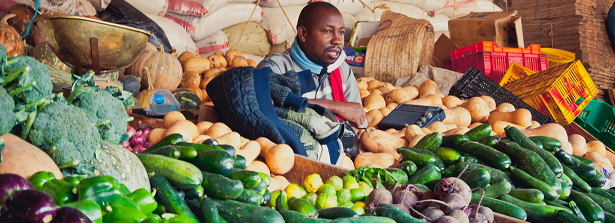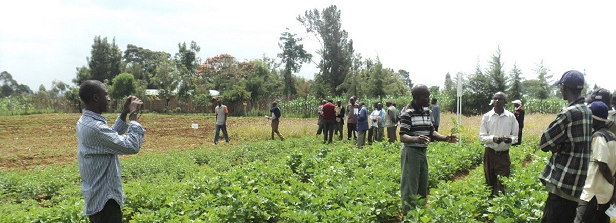African Indigenous Vegetable systems for better livelihoods in Kenya

Duration: August 2014 – August 2017. This project has been finalized.
Project information
Aim: Increase market access of the Africa indigenous vegetable to the local, national and international markets through improving their yield and quality and by establishing a robust marketing and marketing incentive system that responds to the smallholder farmer conditions.
Objective: Improved incomes for farmers and private sector marketing institutions.
Method: Develop organic based soil fertility amelioration strategies for improved production. New cultivars that are adapted to the environmental conditions will be assessed and promoted. Strategies that pick the products from the farm gate through the vegetable value chains will be developed.
Country: Kenya.
Dutch policy goals: Increased sustainable agricultural production; More efficient markets; and A better business climate.
Final report
Summary of the results: ARF of NWO-WOTRO funded the African Indigenous vegetables (AIVs) Project implemented through the leadership of Mace Foods, a private for-profit company based in Western Kenya. The aim of the Project was to address problems along the Gynandropis gynandra (Spider plant), Solanum nigrum (Black nightshade) and Amaranthus retroflexus (Amaranth) and Capsicum sp (Chili) value chains responsible for their low production and market access. Data was obtained from field experiments, household and market surveys and participatory rural appraisal meetings organized by the project. Slightly acidic soils of pH levels of 5.8 – 6.8, optimize yields and the physical and chemical qualities of AIV crops improving access to fresh produce markets. The project developed new IV-based products offered in Kenyan super-markets and a new variety of capsicum sp (African Birds Eye) that took in to consideration market and farmer needs. Using farmer networks, information sharing, production and market access of AIVs improved. Improving the AIVs business climate made 1137 households produce AIVs as priority crops. The Project activities raised the profile of AIVs at the policy level where local governments started to allocate funds to support farmers produce AIVs for markets.

